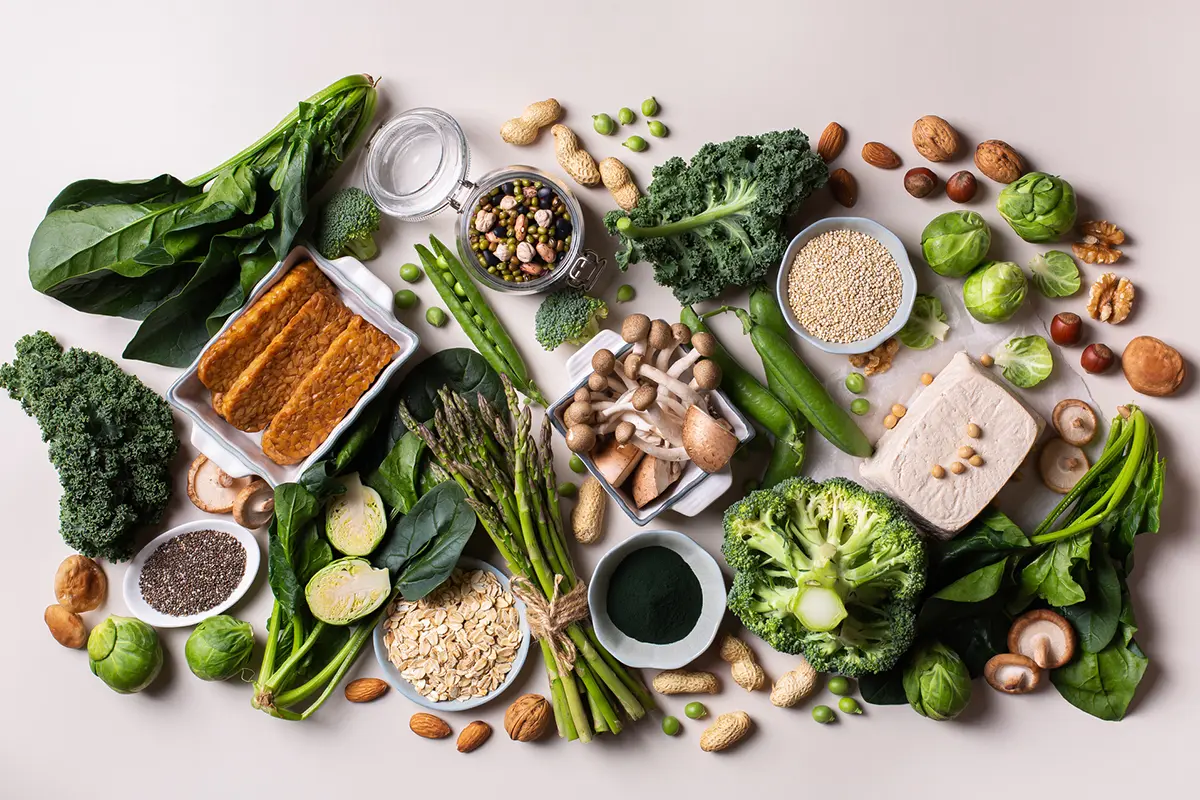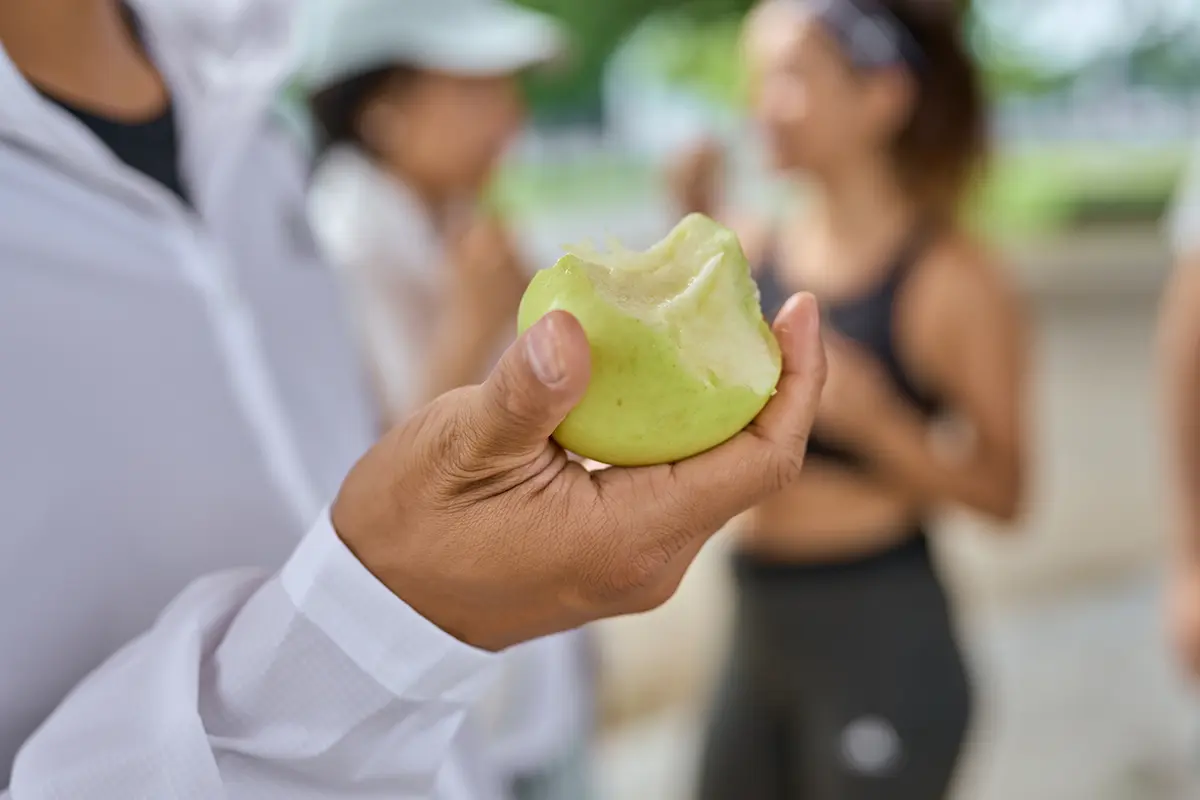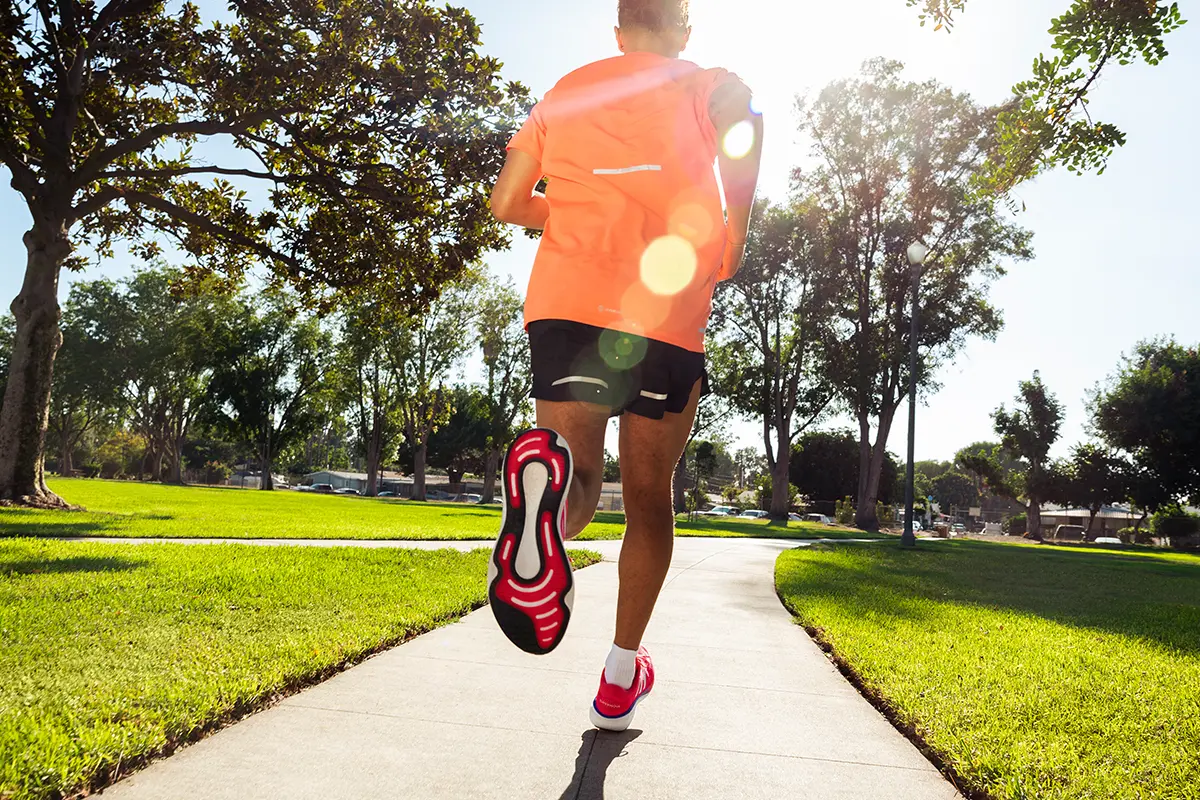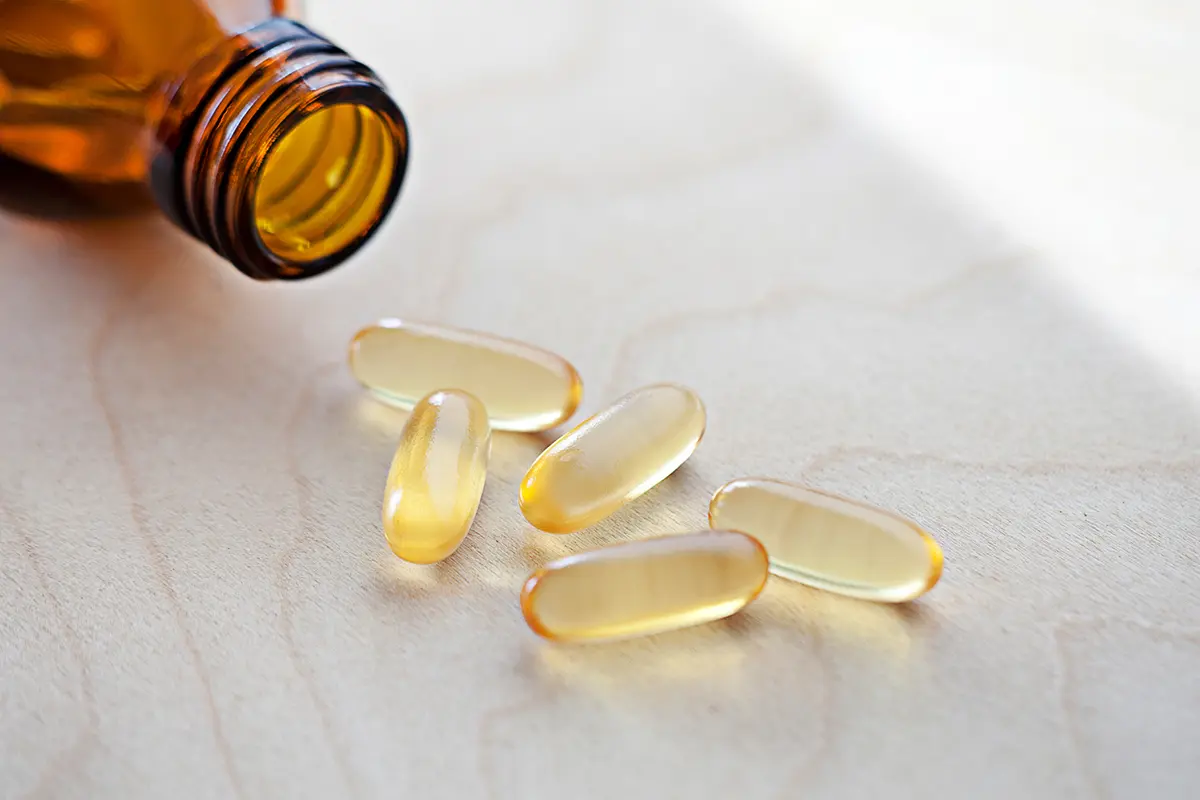DOES A PLANT-BASED DIET FOR ATHLETES IMPACT PERFORMANCE?

Over the past decade, environmental and ethical issues have received more attention. The vegan diet has become increasingly popular.
Some people adopt a vegan lifestyle for health and moral reasons. Others turn to the plant-based meal plan of the athlete in hopes of improving their performance.
Can a vegan diet provide sufficient nutrients and energy for high-intensity exercises? We will examine the pros and cons of a vegan lifestyle in this blog. We will also answer the following question: Can athletes perform well on vegan diets?
WHAT IS INCLUDED IN THE VEGAN DIET FOR ATHLETES?
A growing number of athletes are adopting a vegan lifestyle to improve their health, and most importantly, to enhance their athletic performance. Theoretically speaking, a plant-based diet that is well planned can provide athletes with all the nutrients, energy, and protein they need to perform their best. Here, the key word is “well-planned.”

A vegan diet for athletes should contain healthy fats, complex carbs and essential proteins. Here are some of the key focuses for a vegan lifestyle:
WHOLE GRAINS
Whole grains contain complex carbohydrates that are vital for energy production during exercise. For athletes, brown rice, quinoa and whole wheat bread all make great plant-based options.
LEGUMES
The legumes lentils, black beans and chickpeas are rich in iron and protein.
PLANT BASED PROTEINS
Tofu, tempeh, and other plant-based proteins are great for a wide variety of dishes such as salads, stir-fries and sandwiches. These foods are rich in iron, calcium and magnesium. Magnesium for Athletes in particular is helpful for recovery. These foods are a great addition for any vegan athlete’s diet.
NUTS and SEEDS
Nuts and seeds are rich in fiber, protein and healthy fats. Nuts and seeds are rich in vitamins and minerals such as zinc, magnesium and vitamin E. Cashews and almonds are great choices.
FRUITS and VEGETABLES
The high iron content of dark leafy greens like spinach and kale is especially important. Sweet potatoes, berries and citrus fruits are also great choices.

FORTIFIED FEED
Fortified foods such as breakfast cereals and nutritional yeast can help to provide extra nutrients in a vegan diet.
Tip:
Choose fortified foods that are free of added sugars or artificial ingredients.
SUPPLEMENTS
Supplements may be needed to fill any nutritional gaps.
It may be worth investing in a protein supplement if you find it difficult to get enough “complete” protein from plant-based food alone.
For more information and specific food recommendations on what to eat when following a Vegan diet for Sports, please read our article.
VEGAN DIET
Let’s take a look at the benefits of a vegan diet.
INCREASED NUTRIENT INTOUCH
A vegan diet that is done correctly can be rich in nutrients, since it emphasizes foods high in vitamins, minerals and antioxidants.
You’ll see that almost all the best food for runners is plant-based.
These nutrients have many other benefits besides improving overall health.
BETTER HYDRATION
The majority of plant-based foods are high in water content, which can keep you hydrated when exercising and competing. Fruits and vegetables are especially high in water.
Water-rich foods are low in calories and fat, which makes them ideal for athletes trying to maintain healthy weights with low fat mass.
DIGESTION
A vegan diet contains a lot of fiber which can help with digestion. The gut microbiome will also improve with a vegan diet. This can improve nutrient absorption as well as overall health. (1)
RELIEF FROM CHRONIC DISEASES
The vegan diet is associated with a lower risk of chronic illnesses such as type 2 diabetes and heart disease. The high nutrient content, low saturated fat, and high fiber of the vegan diet are responsible for this.
DISADVANTAGES A VEGAN DIET
Let’s now take a look at some of the possible downsides of following a vegan meal plan for athletes.
POSIBLE NUTRIENT DEFICIENCIES
A vegan diet is low in some nutrients such as vitamin D, calcium and omega-3 fat acids. Vegan athletes should make an effort to incorporate these nutrients into their diet, or take supplements to avoid deficiency.
You can negatively impact your athletic performance and recovery if you are deficient in any of these nutrients.
A vitamin D deficiency, for example, can cause fatigue, poor recovery of muscles, and a compromised immunity response. In this case, the benefits are many and well-proven. It is recommended that a vegetarian athlete take supplements to avoid a vitamin D deficiency.
INCOMPLETE SERINES
In continuation of the previous point, vegan athletes should be aware that they need complete or essential protein.
Complete proteins are those that contain all nine essential amino acids. Plant-based proteins are not complete proteins. You may have difficulty obtaining lysine or methionine in plant-based foods.
It is important that vegan athletes consume plant-based protein to get all of the essential amino acids. This is true especially if you are focusing on for muscle gain.
You can, for example, eat three ounces of chicken breast with confidence that you are consuming complete protein. With plant-based food, however, you can simply mix your plant sources such as nuts and seeds with your usual meal of rice beans and dark leafy vegetables.
FOOD CHOICES LIMITED
The lack of variety and food options is one of the main complaints against vegan diets. You should also eat enough of these foods to get the nutrients you need.
You may be limited in your food choices if you follow a plant-based diet, particularly when dining out or travelling. Planning and preparing meals can take more time.
If you are able to create a vegan program that breaks down the meals each day and eliminates the need for guesswork, it will reduce frustrations and complications.
INCREASED RISE IN RISK FROM OVEREATING CARBOSE
Vegan diets are high in carbohydrates. This can lead to weight gain and overeating if they are not balanced by adequate proteins and healthy fats. This might not be an issue for high-carbohydrate athletes such as marathon runners. However, it can be for athletes who are trying to maintain a certain level of body fat or weight.
SOCIAL STIGMA
Many athletes are afraid of being judged and labeled inferior for following a vegan diet. It can make people feel uncomfortable about their food choices.
Veganism is growing in popularity and acceptance. Vegan athletes have had great success. These include tennis star Venus Williams and bodybuilder Nimai Delagado.
DOES THE VEGAN DIET IMPROVE ATHLETIC PERFORMANCE?
What about athletic performance? Will you benefit from a vegan diet if you are an athlete?

Here is what science has to say about how a vegan diet helps athletes.
Fat Loss
A vegan diet is a great option for athletes who want to maximize lean muscle mass and minimize body fat.
FUEL TRAINING
Calories are the kings of any athlete’s training plan. Although some sports may require athletes to be lighter and restrict their caloric intake, most athletes will need to consume a lot of calories to perform at their best.
This is especially true for endurance athletes who are cardio . Marathon runners need a lot of calories, and they are particularly dependent on carbohydrates. A high-carbohydrate, or carbohydrate-rich diet is the cornerstone of a healthy lifestyle for athletes.
A plant-based, high carbohydrate diet is ideal for athletes. It provides a variety of healthy complex carbohydrates. Complex carbs are a better fuel than simple carbs because they burn longer and more effectively.
ENHANCED RESTORATION
A vegan diet that is well planned can help athletes recover from sports in many ways.
This is important because chronic inflammation can impact recovery and performance. Chronic inflammation can affect performance and recovery.
A vegan diet that provides complete proteins can support muscle repair and recovery. A vegan diet with plenty of complete protein can help to support muscle recovery and repair.
Learn more about the protein. See our guide to proteins.
Some studies suggest that vegan athletes recover faster from sports than their omnivore counterparts. According to some studies, vegan athletes recover faster from sports than their omnivorous counterparts.
SHOULD Athletes Follow a Vegan Diet?
Studies show that, in general, a vegan diet can provide athletes with enough energy and nutrients to perform well, but only when it is programmed properly and adhered to consistently.
There are a few things athletes who follow a vegan diet can do to enjoy the benefits without having to worry about potential negative effects.
Watch Your Nutrients
Make sure to pay attention to the micronutrients you consume.
IRON
Iron is necessary for oxygen transportation in the blood. Athletes may require more iron than individuals who are sedentary. Iron can be obtained from plants such as legumes, leafy greens and fortified grains.

CALCIUM
Calcium is essential for muscle and bone health. Plant sources of calcium include leafy greens and tofu.
VITAMIN B12
This micronutrient plays a vital role in nerve function and the production of red blood cells. Vegans can get vitamin B12 through fortified foods or supplements.
MAKE COMPLETE PROTEINS BY MIXING IT ALL UP
Vegans can get protein from legumes, tempeh and seitan, as well as tofu and other plant-based sources. It may be necessary to mix different plant sources in order to get all of the essential amino acids.
Know why you’re doing it
A well-planned vegan lifestyle can have many health benefits, and it can also support recovery and athletic performance. However, you must first understand the reasons for making the switch.
If you are simply following the trend, we wouldn’t advise going vegan to improve your athletic performance. We also recommend that you do a thorough analysis of your own caloric needs and fitness goals.
Remember:
Before making any major dietary changes, you should consult with your healthcare provider. Before making the switch, make sure that the vegan diet aligns with your goals and lifestyle.
